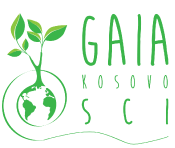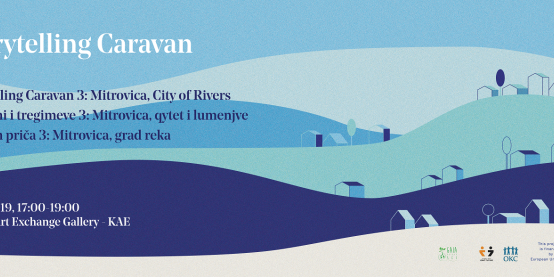Mitrovica’s rivers have been at the core of the city’s life as long as people can recall. The Ibar, Sitnica and Lushta rivers have surrounded inhabitants lives, and through decades they have evolved with the transformation of the city. On Saturday 23 March 2019 we invited three Mitrovicali whose lives have been deeply connected with the rivers of Mitrovica. Through their testimonies and anecdotes we considered the necessity to protect our environment and nature.

Srdjan Mrkić is a fisherman and has a very clear memory of women washing their clothes in the rivers of the city during his childhood. At that time, he would also remember the purity of water and animals drinking from rivers. These memories are also shared by Muja Istrefi; who has been working since 1994 in the waste department of the water station in Mitrovica. When he first saw the Ibar river he was in 7th grade and got very impressed by the amount of water. Muja Istrefi took us to imagine the time when Lushta was still an open river and Sitnica was a clean river. Arif Kadriu, younger than our two other storytellers, is a fisherman as well and shares a very deep connection with the rivers of Mitrovica. When he was a young boy, he and his family used to go to Kushtova for the weekend. “Many families did the same, drank Russian tea, ate flija; Serbian and Albanian families, everybody was socializing and spending time together”. The three men share the memories of a united city where rivers were not synonyms of separation. Srdjan Mkrić added that “we have more bridges now but back then we used to be more united although we had only one bridge”.
They witnessed the transformation of the city and its rivers, when the industrial boom occured in the 70’s. Nowadays, the pollution of water has become a main issue for Mitrovica and Kosovo. Our storytellers all mentioned the absence of effective legislation concerning the protection of rivers. As a consequence, the pollution of water increases and it now has detrimental effects on the health of the population. For this reason “we need to implement punitive measures when someone is polluting the rivers, regardless of whether it might be a person, a factory or a private business”. Our storytellers were convinced that Mitrovica’s inhabitants should all take into account the needs of the rivers despite the fact that the city is now divided in two parts and shared between many different communities. In the past, there had been projects to clean the rivers but none of them had a real outcome. Now, new infrastructures in the city do not include any green area at all. Arif Kadriu conducted a study about local businesses installed on the banks of Ibar and Sitnica’s rivers. Twelve of them are very harmful for the rivers and it could take years for the rivers to recover from the pollution. “We know that rivers are a great natural resource but we are destroying them despite the fact that our parents and older generation have taught us to protect them”. Muja Istrefi insisted on the necessity to involve the younger generation in the protection of the environment: “Children should not only be taught these things in primary school; they should go outside, see the rivers and learn how to protect them”.

Storytellers: Arif Kadriu, Muja Istrefi and Srdjan Mrkić
Finally, our storytellers had the occasion to bring up their special relationship with the rivers of Mitrovica. Arif often stops his car on the way for work, only to see and touch the flowing water. Fishing invites you to meditate and let your problems “flow with it and disappear”. Srdjan usually tries to remove trash from the rivers. “Here in the Balkans, when we talk about environment, we could start crying”.
The audience had the chance to discuss with our storytellers after the event, around food and refreshment. The event was completed by a exhibition of photos which have never been displayed before, selected by the museum of Mitrovica for the occasion. Through these pictures, we could imagine how the rivers looked like 30 or 50 years ago.
Written by Célia du Plessis and Hugo
‘Storytelling Caravan III: Mitrovica, City of Rivers’ was the third event of the project “Mitrovica’s Joint Stories”. This project is financed by the European Union, through the project Divided Past-Joint Future with OKC as leading applicant and organized by GAIA Kosovo. Two monthly events will follow, on different topics exploring our experiences of Mitrovica.
The content of this article does not reflect the official opinion of the European Union. Responsibility for the information and views expressed in the article lies entirely with the author(s).







